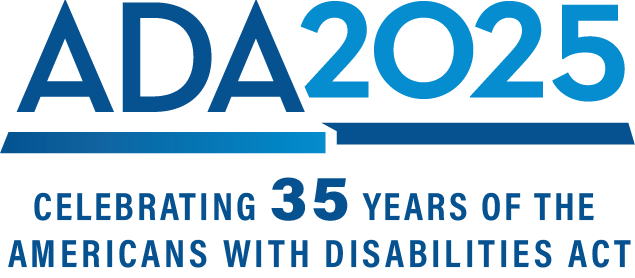Like all Americans, people with disabilities need health care services to stay healthy from knowledgeable health providers. The ADA has helped more people with disabilities receive that care by requiring health care providers to provide full and equal access to care.
Despite great strides over the last 30 years, people with disabilities often still encounter health care providers who lack proper training on disabilities or rely on false stereotypes and assumptions about what it means to live with a disability that can negatively impact the quality of the care they provide. Many medical training programs still lack meaningful content on the broad range of disability experiences that could help medical professionals provide a higher quality of care.
The good news is that a large body of evidence suggests early and frequent experiences with people with disabilities can improve medical students’ knowledge and attitudes about disability, increasing their comfort level as they provide care. A number of efforts have worked to fill the disability training void in health training programs and to better prepare the health care workforce to meet the needs of individuals with disabilities.
- The Alliance for Disability in Health Care Education, through funding from the Centers for Disease Control and Prevention (CDC), has competencies for health care training curricula and programs that can be adopted into new or existing public health curricula and training programs.
- The National Inclusive Curriculum for Health Education Medical (NICHE-MED), founded by the American Academy of Developmental Medicine & Dentistry (AADMD), partners with 36 medical schools to integrate disability content into the medical school curriculum.
- The ACL-funded PATH-PWIDD project is a national, cross-sector consortium of advocates, health care providers, community-based workers, leaders in health care workforce education, policy experts, and academics that has been integrating high-impact and inclusive learning activities into an interprofessional education (IPE) curriculum for a more competent healthcare workforce better equipped to care for persons with intellectual and developmental disabilities.
The ADA has helped people with disabilities access care by addressing critical barriers like facility accessibility, communication, and reasonable accommodations. These workforce and training initiatives build on that progress by improving the quality of care that people with disabilities receive.

